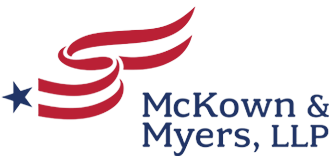
Social Security Disability (SSD) benefits can serve as a financial lifeline to individuals unable to work due to a disability. However, the Social Security Administration (SSA) released in its 2020 report that they have denied over 67% of SSD applications. This high rejection rate has severe implications for those who need this benefit. One way to alleviate this issue is for an applicant to file for the proper type of SSD. Thus, to ensure timely claim approval, the applicant must file for the appropriate program and follow its respective requirements.
The SSA has five (5) different SSD programs, and they are as follows:
1. Social Security Disability Insurance (SSDI)
One of the programs provided by the Social Security Administration (SSA) is the Social Security Disability Insurance (SSDI) program. This benefits people with a disability that prevents them from working. To be eligible for SSDI, an applicant must have worked jobs covered by Social Security for several years and paid Social Security taxes. The amount of the SSDI benefits will depend on their earnings history and the number of dependents they have.
2. Supplemental Security Income (SSI)
Social Security Income (SSI) is an SSA program that benefits those with a disability, low income, and few assets. To be eligible for SSI, the applicant must meet the disability requirements and have income and assets below certain limits. The amount of the SSI benefits will depend on the applicant’s income and resources.
3. Benefits for Children with Disabilities
The Social Security Administration (SSA) benefits children with disabilities who meet specific criteria. To be eligible, the child must be under age 18 and have a disability that meets the SSA’s definition of disability. The amount of benefits the child receives will depend on the child’s age and disability.
4. Survivors (Death) Benefits
The Social Security Administration (SSA) provides benefits to the survivors of workers who have died. To be eligible, the survivors must meet specific criteria, such as being the spouse, child, or parent of the deceased worker. The amount of benefits the survivors receive will depend on their relationship to the deceased worker and their age.
5. Disabled Widows and Widowers
The Social Security Administration (SSA) provides benefits to widows and widowers who are disabled. To be eligible, the widow or widower must meet specific criteria, such as being at least fifty (50) years old and having been married to the deceased worker for at least ten (10) years. The total benefits the widow or widower receives will depend on their age.
Eligibility Requirements for Social Security Disability Benefits
The eligibility requirements for Social Security disability benefits vary depending on the program. Each type of SSD benefit program has its own specific requirements.
However, some general eligibility requirements apply to all of these programs.
- Applicants must have a disability that prevents them from working.
- Applicant’s disability must be expected to last at least 12 months or result in death.
- Applicants must meet the specific disability requirements for the program they are applying for.
- Applicant must have worked in jobs covered by Social Security for a certain number of years and paid Social Security taxes.
- The income and assets of the applicant must be below a specific limit.
Social Security disability benefits can provide much-needed financial assistance to people unable to work due to a disability. If you are eligible for Social Security Disability benefits, apply immediately. The application process can be long and complicated, but it is essential to start the process early.
If you or a loved one is eligible to claim Social Security Disability (SSD), you can count on us to assist you in filing your claim. At McKown and Myers, it’s our job to help Hoosiers like you get the compensation they need to get medical treatment and support their families. We’re here to answer your questions about your SSD application – call 765-668-7531 or complete our contact form here. There’s no obligation – we’re here to help.
